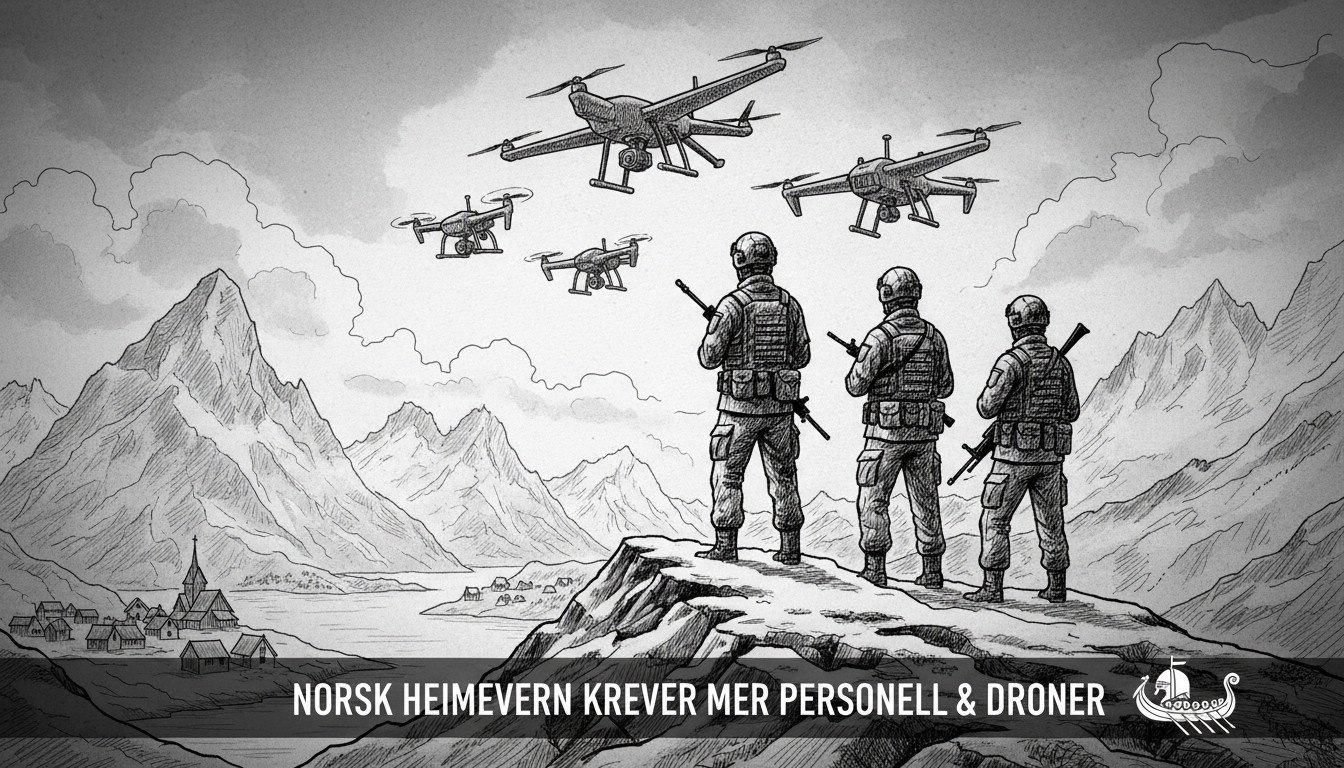The Norwegian Home Guard's National Council is calling for immediate expansion of both personnel and drone capabilities. Council leader Are Tomasgard stated the organization needs drones and expertise in both offensive and defensive applications. He emphasized the urgency of these requirements in a recent announcement.
The council supports revising the long-term defense plan approved last summer. Officials now acknowledge the current plan fails to meet present needs. The existing framework falls short both financially and in terms of timing.
Specific plans call for increasing Home Guard soldiers from 40,500 to 45,000 personnel. This expansion requires training additional soldiers to meet the new targets. The announcement followed Tuesday's meeting of the Home Guard National Council.
This push for enhanced capabilities reflects Norway's changing security environment. The country shares a border with Russia in the Arctic region. Recent geopolitical developments have prompted reevaluation of defense priorities across Scandinavia.
Norway's Home Guard serves as a rapid response force during emergencies. It provides support during natural disasters and maintains local security. The organization consists of both professional soldiers and part-time volunteers.
The drone technology request aligns with modern military trends. Nations worldwide are integrating unmanned systems into defense strategies. These systems provide surveillance capabilities and tactical advantages.
Expanding from 40,500 to 45,000 personnel represents substantial growth. This increase comes despite Norway's relatively small population of approximately 5.4 million people. The expansion signals serious commitment to territorial defense.
The timing of this request raises questions about budget priorities. Norway maintains one of Europe's largest sovereign wealth funds. Yet defense spending decisions remain politically contentious.
What does this mean for Norway's neighbors? Sweden and Finland have recently joined NATO. This creates new regional defense dynamics. Norway's enhanced Home Guard could coordinate with these new allies.
International observers note Scandinavia's strategic importance. The Arctic region contains valuable resources and shipping routes. Norway's military enhancements reflect broader regional security concerns.
The personnel increase presents practical challenges. Norway must recruit and train thousands of new soldiers. This requires significant investment in training facilities and instructors.
Drone acquisition involves both equipment and training considerations. Operators need extensive preparation for both civilian and military applications. The technology requires ongoing maintenance and support systems.
This development represents a shift toward more comprehensive territorial defense. It signals Norway's commitment to maintaining security despite changing global circumstances. The expanded Home Guard will likely play a crucial role in national emergency response.

